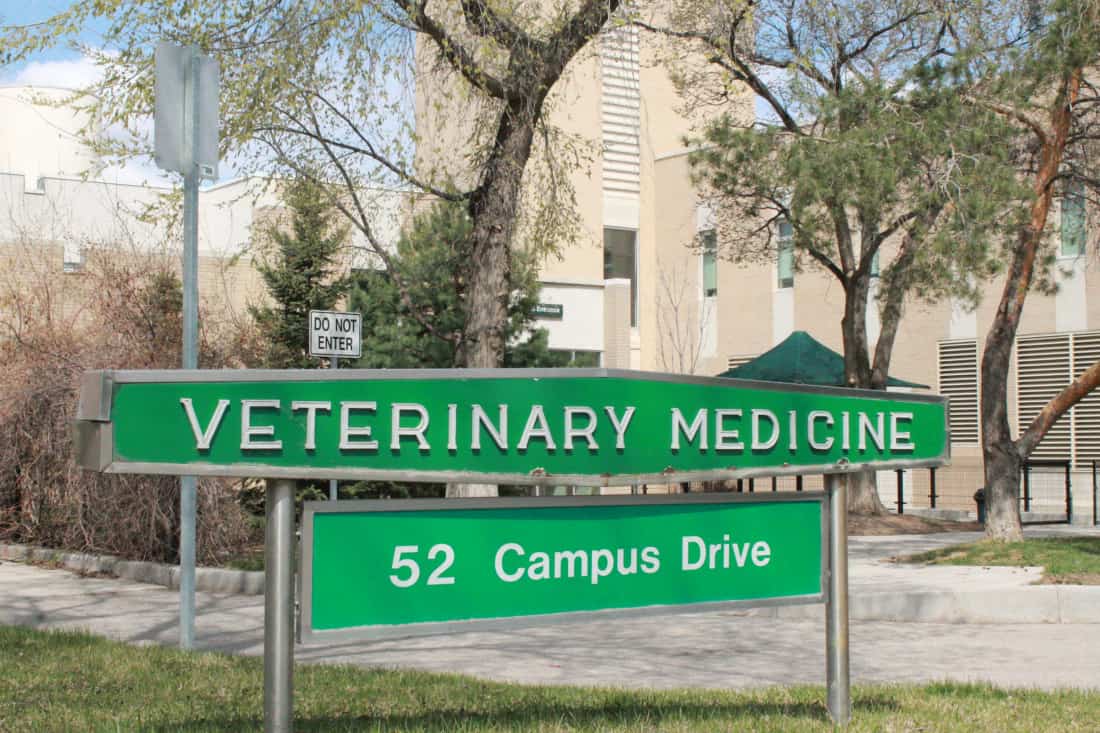
The Western College of Veterinary Medicine plans to increase tuition and begin offering previously rejected students a second admission option.
In the university’s recent tuition freeze announcement, it was revealed that the WCVM is one of the few University of Saskatchewan colleges that will be facing a tuition hike in the fall. The tuition rise is reported to be 15 per cent for 2020-21. Douglas Freeman, WCVM dean, has confirmed that the plan is to increase tuition gradually over five years from the 2019-20 estimate of $10,737 to approximately $15,000.
The college is facing financial pressures given Alberta’s sudden decision in 2017 to drop out of the long-standing Inter-Provincial Agreement, a contract between WCVM and its four partner provinces: Saskatchewan, Alberta, Manitoba and British Columbia.
Freeman says Alberta’s decision came as a shock for the college.
“Everyone was surprised,” Freeman said. “We were close to finishing the next IPA when they made the announcement.”
Alberta’s choice not to renew the agreement came after the University of Calgary’s lobbying to keep funding in the province. Under the previous agreement, the WCVM had 20 seats per class subsidized and held for Albertan students. These seats will now become vacant as current students from Alberta move through the program.
“It changes the base funding for operation,” Freeman said. “Our tuition has been one of the lower ones historically compared to other Canadian vet schools.”
To deal with this change, the WCVM is implementing an option to apply for seats not subsidized by the IPA, which will generate more revenue for the college. An estimate on the college’s admissions page says the rate for non-IPA tuition will be approximately $66,684, which is over six times the current tuition rate.
Freeman says that the non-IPA seats are a second opportunity for admission for highly qualified Western Canadian students who did not get accepted through the standard admission process. In his view, it is an opportunity to pay the international rate for tuition but have the benefit of staying here in Canada as opposed to studying abroad.
The admission criteria will remain the same for this second round of admissions and the seats will be open to both international and domestic students. Canadian students will have the opportunity to indicate their interest in these spots by checking a box on their application forms.
In addition to making the Albertan seats into non-IPA seats, the college will be considering other ways to make up for the funding hit.
“Nobody likes to see tuition raised,” Freeman said. “But the reality was we were below what was reasonable compared to the other schools.”
Some veterinary medicine students are wary of changes to come. Felicia Jardin*, a student of the college, fears that the tuition increase is going to affect their ability to pay for school.
“A tuition increase means I’ll have to rely more heavily on student loans and student lines of credit than I did before,” they said in an email to the Sheaf. “Other students that are already paying more … will also feel the financial squeeze.”
About the new two-tier system, Freeman says that it “was a long discussion.” The college has had two years to plan for the funding hit.
“None of the other provinces could replace the funds from Alberta and we discussed with them in great detail,” Freeman said.
Jardin says there is still some confusion among students around the future of the college and non-IPA seats as a funding strategy.
“I can see that the WCVM needs to enact some of these changes in order to keep running,” Jardin said.
“What is confusing to some students, myself included, is … why tuition will still increase despite accepting international/unsubsidized seats, and what this means for the future veterinarian pool.”
*To protect their identity, the individual’s name has been changed.
—
Dominique Panko
Photo: Ammara Syeda | Photo Editor